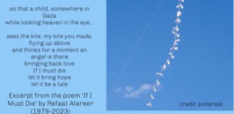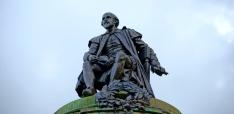Syria Adrift
Two interconnected reasons have caused me to focus particularly on Syria in the past few days.
The first is straightforward enough. I have been finalising a book put together on the basis of my experiences of living in Syria immediately prior to the current tragic events. It is about living in an old Arabic house down near the Umayyad Mosque in the Old City, and using those experiences to further explore a few things that fascinated the historian and social scientist in me. The book will also feature some of the Old City and other photographs I took there – from a long time ago – as I have in some respects had more of a buzz out seeing a photo go “public” than the written word.
Because of the state of publishing these days, this is to be an e-based book available on Kindle, Nook, iBooks, Kobo and all the rest, hence the recent interest I have shown on my personal blog in e-publishing and all that goes with it. The recent crime fiction festival in Harrogate produced a lovely stoush around all this, which contained some interesting ideas and eventualities. So I have been busy (alongside the project day job here in Cambodia) doing the final editing and arranging and thinking about it all, before sending it off a couple of nights ago to the US company that is doing the technical formatting for me. Family and a couple of good friends have been reading it over for me and editing, and that has made a huge difference. Which brings me to the second reason why this blog has been quieter than normal.
One of those friends is still in Damascus, and reporting what you may have seen in the media: explosions heard all over the city, gunfire, serious destruction in a couple of suburbs, and helicopter gunships over the top of a couple of upscale suburbs. Iraq has shut its borders to Syrian refugees and caused considerable resentment, because Iraqis flooded in to Syria when Desert Storm and Desert Shield were going on. Jordan, Turkey and Lebanon are all now controlling the flow of people out of Syria, and external agencies like UK Border Security in Beirut seem to be taking a hard line on issuing visas. Along with the sanctions, Syria and its people are being bottled up, as it were, and the pressure is building.
A major part of the issue is that it seems almost impossible to get an accurate account of what is really going on, and what the likely scenarios might be. From the West, of course, the immediate target was and remains to “get rid of Bashar al-Assad.” That has been so since the Axis of Evil days dreamed up by the egregious John Bolton, and spruiked to all and sundry by George Bush and the neocons. Now that the drift seems to be going that way, the current US administration is advancing out of its foxholes and announcing, among other things, that one of its agencies has quietly been working with “the opposition” to plan for a post-Assad future. The fact that this agency had a similar role in Iraq is not comforting, especially for anyone who has read Rajiv Chandrasekaran’s wonderful Imperial Life in the Emerald City,which was about Paul Bremer’s viceregal approach in Baghdad immediately after the fall of Saddam Hussein.
It is that “opposition” that is currently the problem and has been since the outset of the struggle, and it just gets more complicated. The latest example concerns Manaf Tlass, the high profile “buddy of Bashar” general who defected and who insists he is not looking for power. He is being cast, though, mainly by some Western sources, as the new head of the opposition (whatever that is), and is immediately dubbed by some Arab commentators as “the new Chalabi” in reference to the corrupt puppet, Ahmad Chalabi, thrust into power in Iraq and who proved to be a complete disaster.
The opposition is split in so many ways. One serious fault line is between the “revolutionaries on the ground,” and the “exiles” who have been out of the country for a long time but are now seeking to control affairs. Several meetings have been disrupted by ruptures between these two groups, and then the other divisions start appearing. On Twitter, for example, there is a persistent line from some revolutionaries that this is an internal Syrian matter that will be solved by Syrians. That is unlikely to be the case because of what Syria represents regionally and globally. Then, the Kurds have a very strong hand in all this and that, of course, bothers Turkey which has been taking a strong line on Syria: it may want regime change, but it also wants to suppress any Kurdish outbreak because that gives it major domestic headaches. The Sunni-Shia schism is obvious, and grows more worrying by the day, and it has dominated commentary in the West about the drift to sectarian “civil war” as further complicated by Bashar al-Assad’s Alawite-led coalition of minorities including Christians. But the rural-urban divides are also important, aggravated in recent years by drought that has caused population drift towards already under pressure cities like Aleppo and Damascus. Rising prices, food shortages and that old revolutionary staple, a shortage of bread, are all adding further nuance into a mix that some observers see further riven by regional tribal alliances and enmities.
In spite of all that, and despite the fact that the “peace plan” has failed miserably, the UN and Western leaders seem still to persist with the idea that they can somehow fashion a solution out of this that will be “good for Syria” but also, naturally, good for them. Perhaps in part response to that general line, and prompted by some lines of analysis from within Syria itself, there is a growing alternative view beginning to emerge. At one end of this is Michael Ignatieff’s extraordinary view that this is an East-West dividing moment, a struggle between the capitalist democracies on one hand, and Russia and China (that he describes pejoratively as “kleptocracies”), on the other. In his view, this is the new Cold War. Ignatieff has had a stellar career as an historian and a less stellar one as a Liberal Party politician in Canada, where he led the party to defeat last year and lost his own seat in the process. He was an interventionist on Iraq, and generally has been seen as one urging the USA to be the great “humanitarian empire” and save the world. Because of that he was an early advocate and developer of the policy known as R2P (Right to Protect), which is basically a doctrine justifying intervention in places like Syria in order to protect the citizenry.
A far more nuanced and interesting view, however, is the idea that the current Syrian story has emanated from a long running regime change policy orchestrated in the West via think tanks and other agencies, with a now-hard reach into the Syrian opposition. It is a complex and detailed story, but one that causes thought. The reason it does that is because much earlier reports from reputable agencies, like the International Crisis Group, consistently suggested that all was not what it appeared to be in the Syrian story, and that at least some of the elements in Bashar al-Assad’s claims about the nature of the conflict had some truth about them. While it will be a long time before the real truth is revealed about what happened in places like Houla and Tramseh, it does seem clear that there are some Islamist groups and operatives at work inside all this, and that leads to further fears about what might happen as things progress.
That includes a possible reassessment of the role of previously reckoned pariah groups like Hezbollah. Hassan Nasrallah has been generally seen outside the region as the devil incarnate who sides with Iran and runs the Shia line through Syria and into Lebanon, posing a constant threat of war on Israel. The real issue now, though, given that Nasrallah has constantly sided with Bashar al-Assad, is what might it be like if he was to be displaced and Hezbollah replaced by something even more threatening in the West’s view?. This is the regional view of “be careful what you wish for.”
The problem with that global view is that it forgets what is happening on the ground, because people like my friends in Damascus, Homs, Lattakia and elsewhere look increasingly like being stuck there while all this brews up, and very likely blows. The suffering already has been unimaginable, and on the ground ordinary citizens are doing what they can for those who have been directly affected by all that has happened. Damascus seems quiet for the moment, but the stage seems to have been shifted to Aleppo and the reports of an imminent “massacre” there. That is why I have been distracted.
As another of my friends reading the Damascus book has clarified for me, however, Aleppo historically also signals something of the Western view. In Macbeth, Shakespeare has his witches taunt the wife of a sailor “to Aleppo gone, master o’ the Tiger.” He would have been a brilliant sailor had he got the ship there, because Aleppo is seventy five kilometres inland from the Mediterranean! Perhaps as in Shakespeare’s seventeenth century England, Aleppo and Syria now are mysteries beyond easy global analysis, especially as my friends endure the hell that is going on around them.
As well as his regular columns for Global Policy, Professor Brian Stoddart also writes on his blog at www.professorbrianstoddart.com


